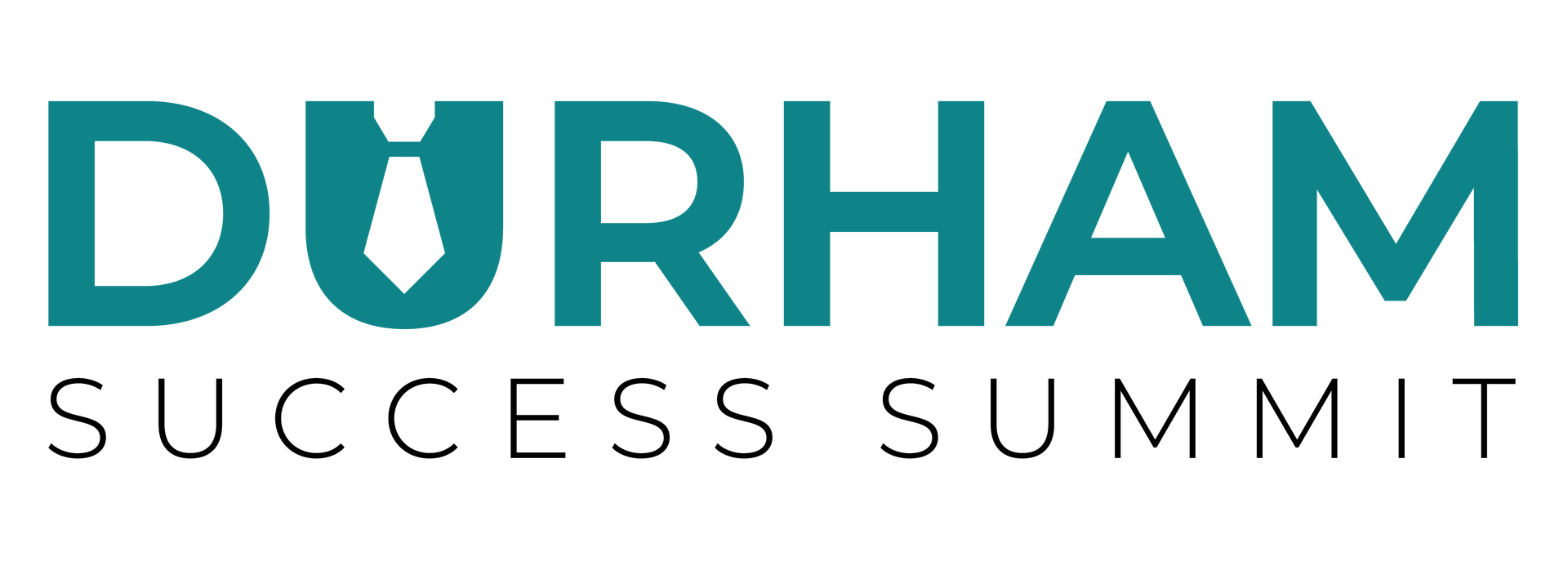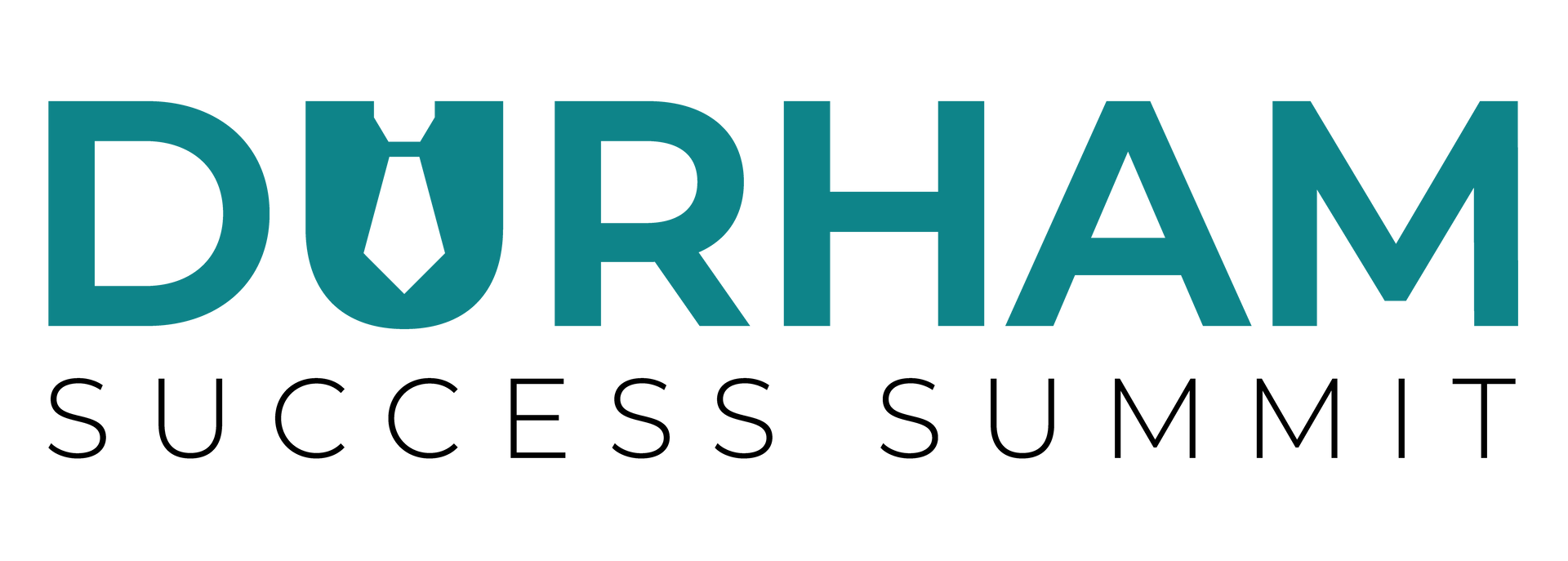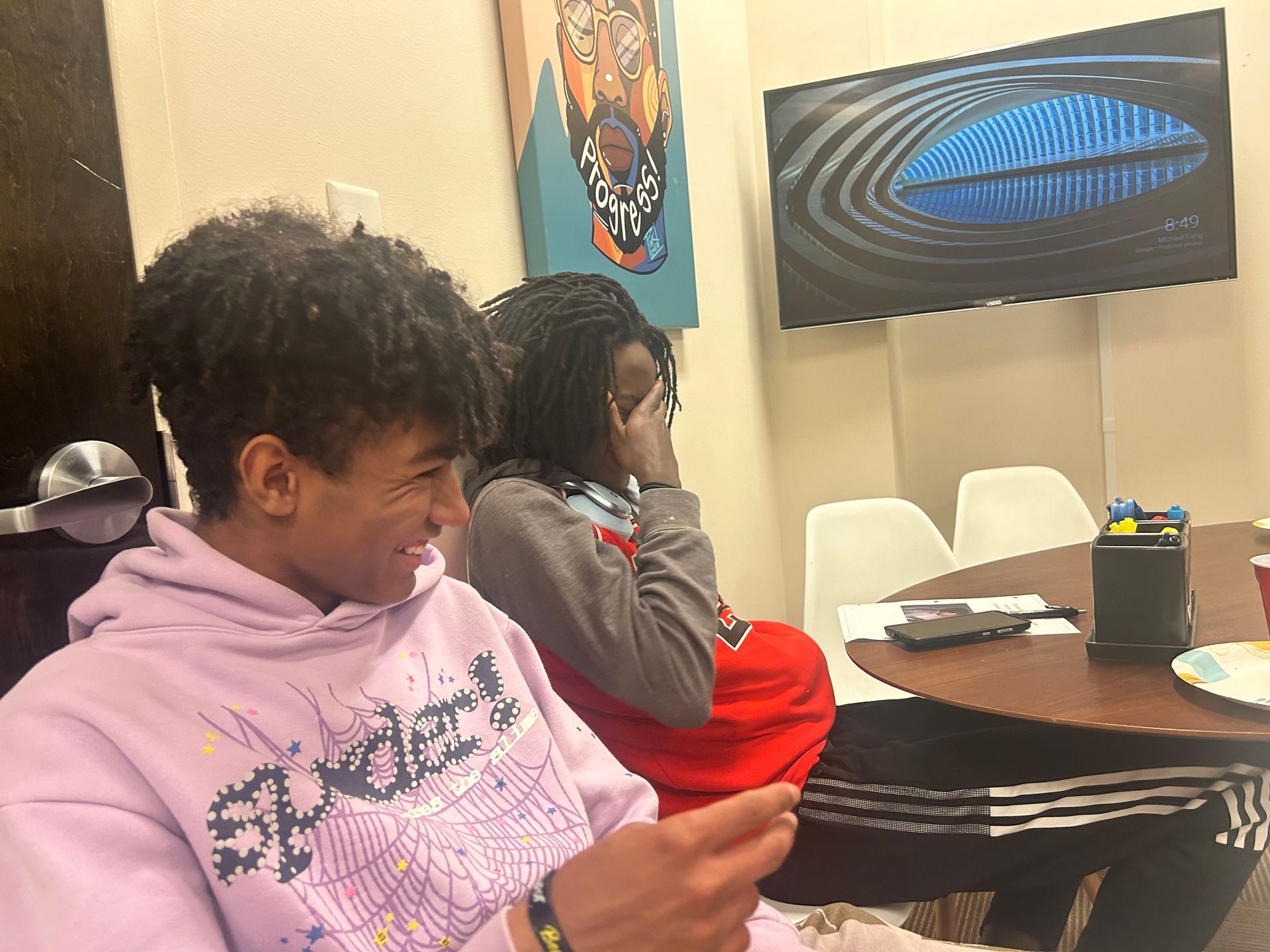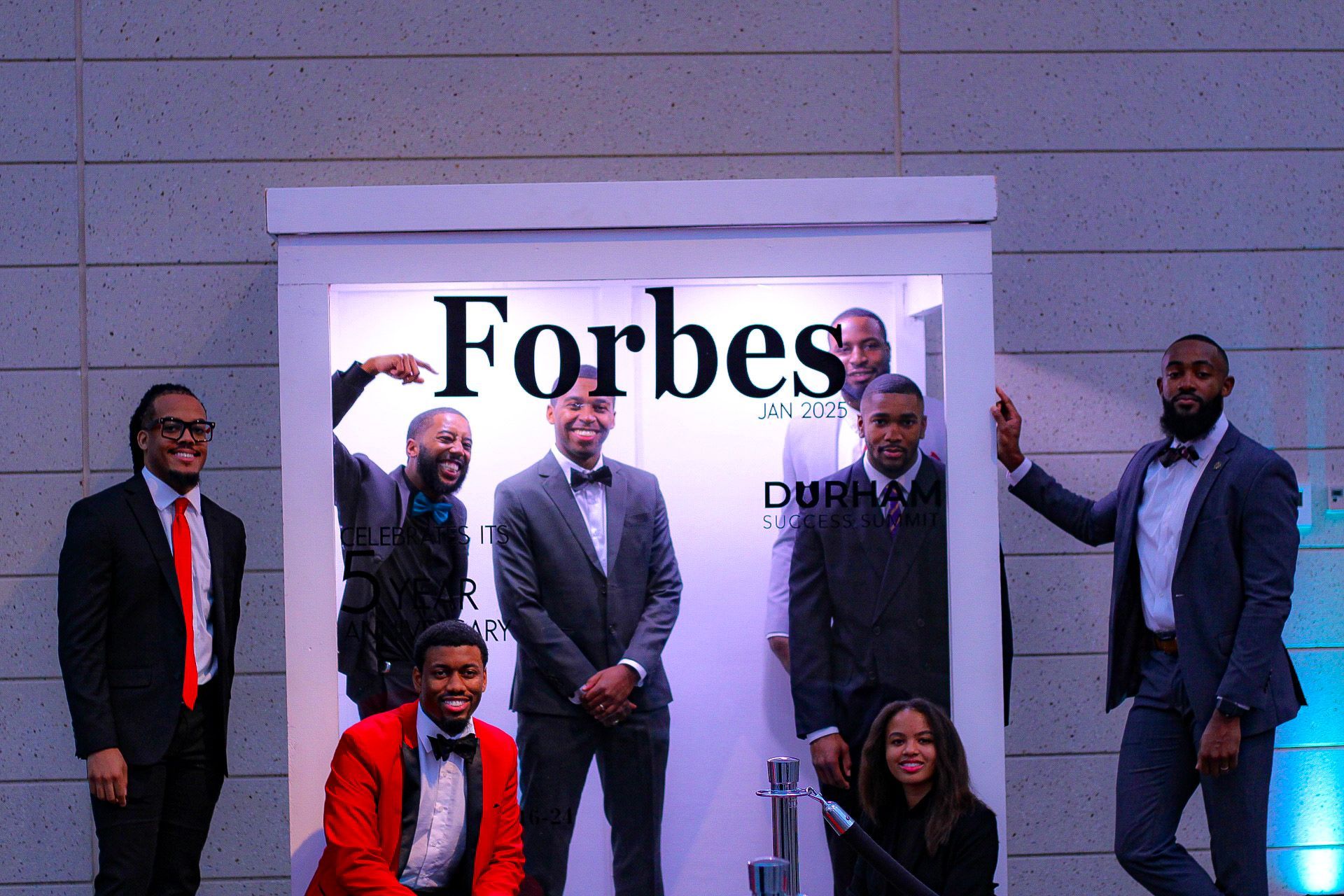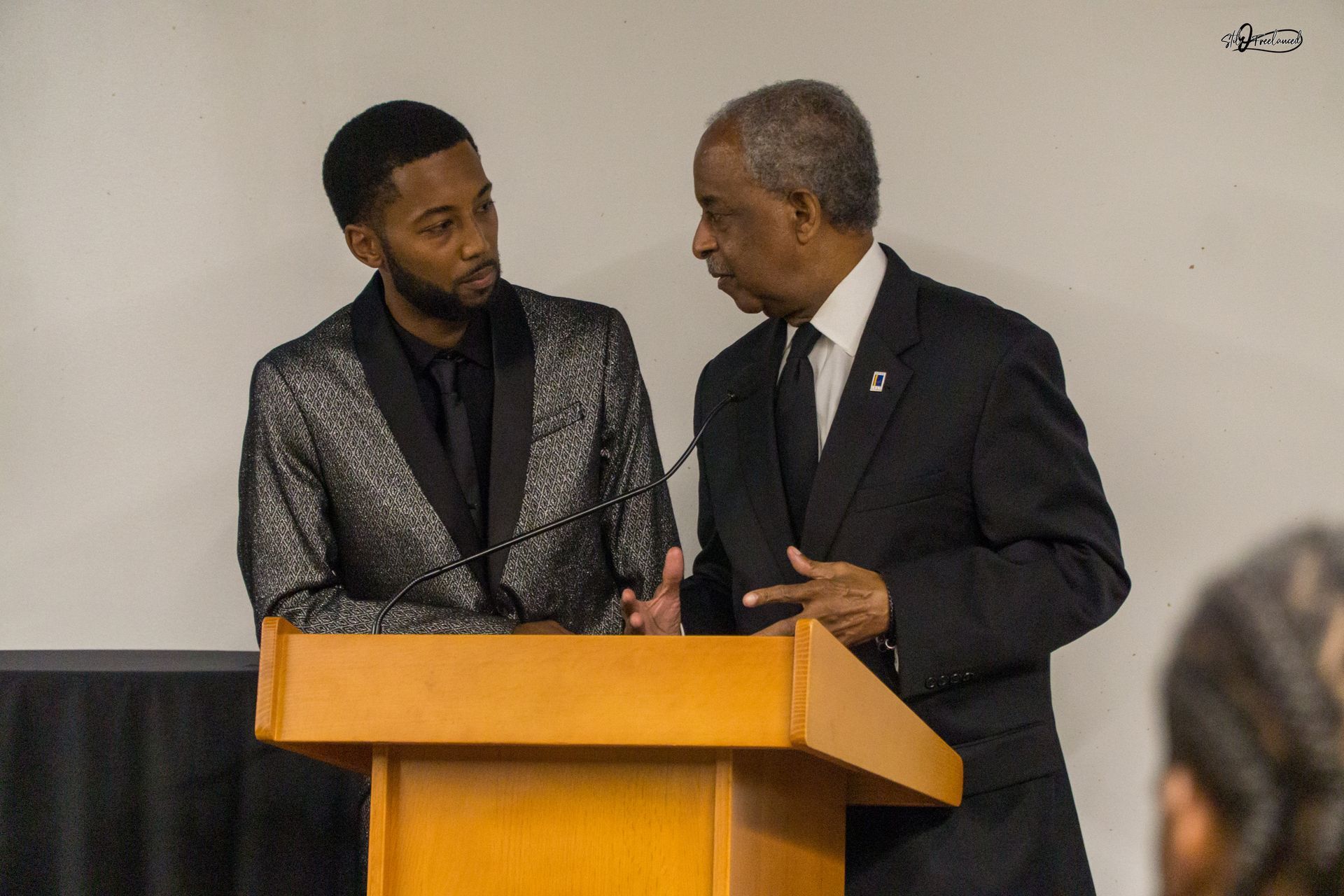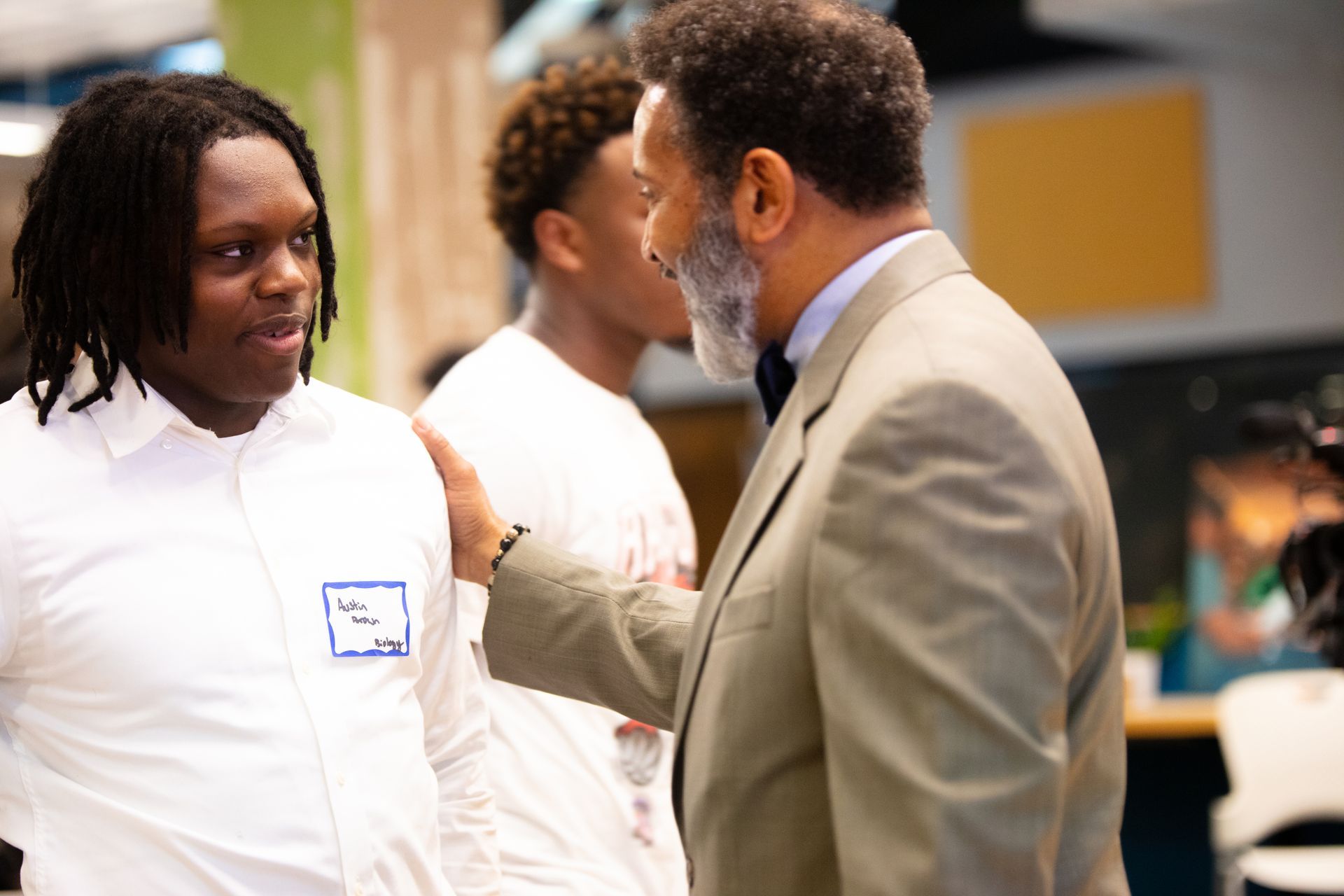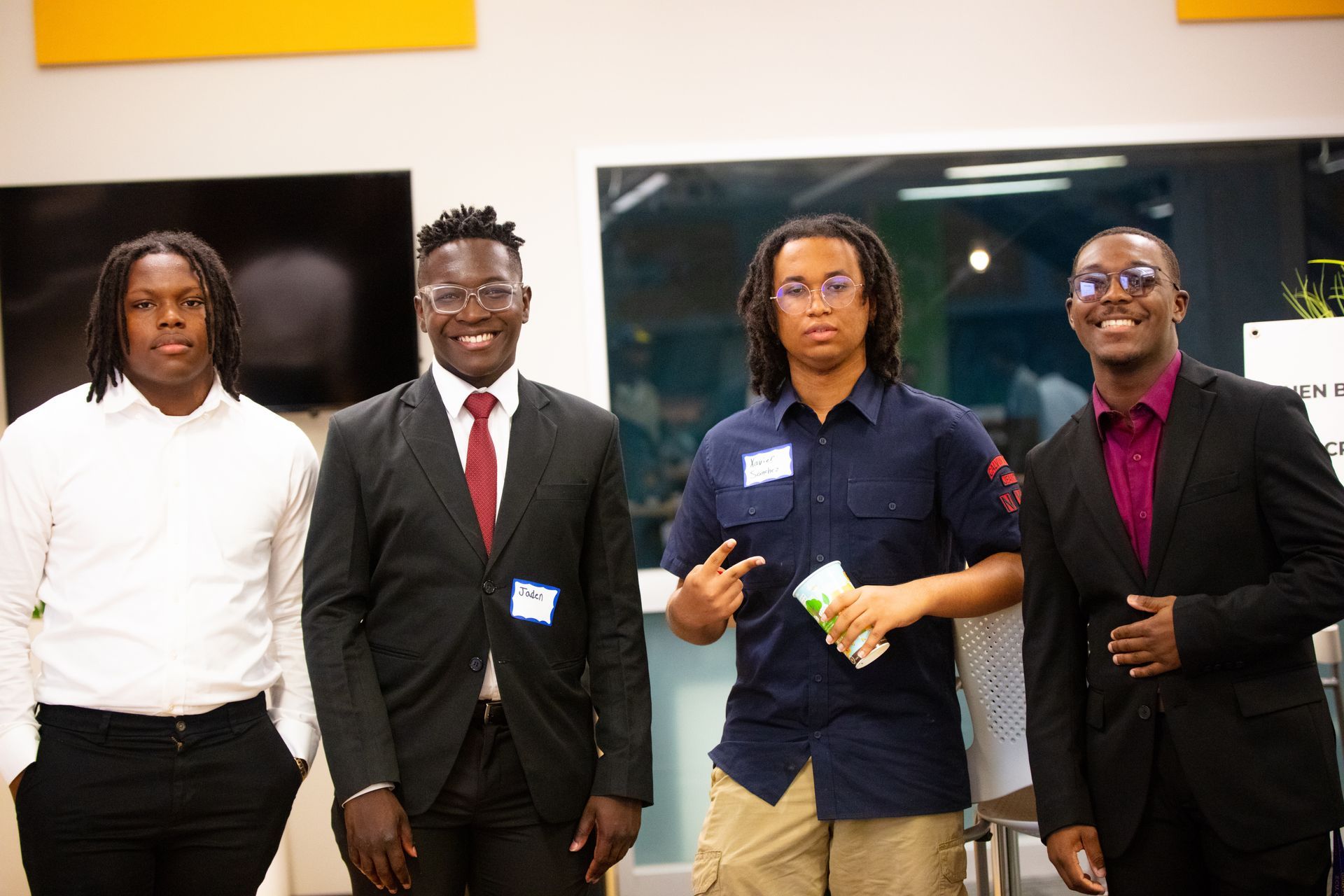WHAT'S NEW?
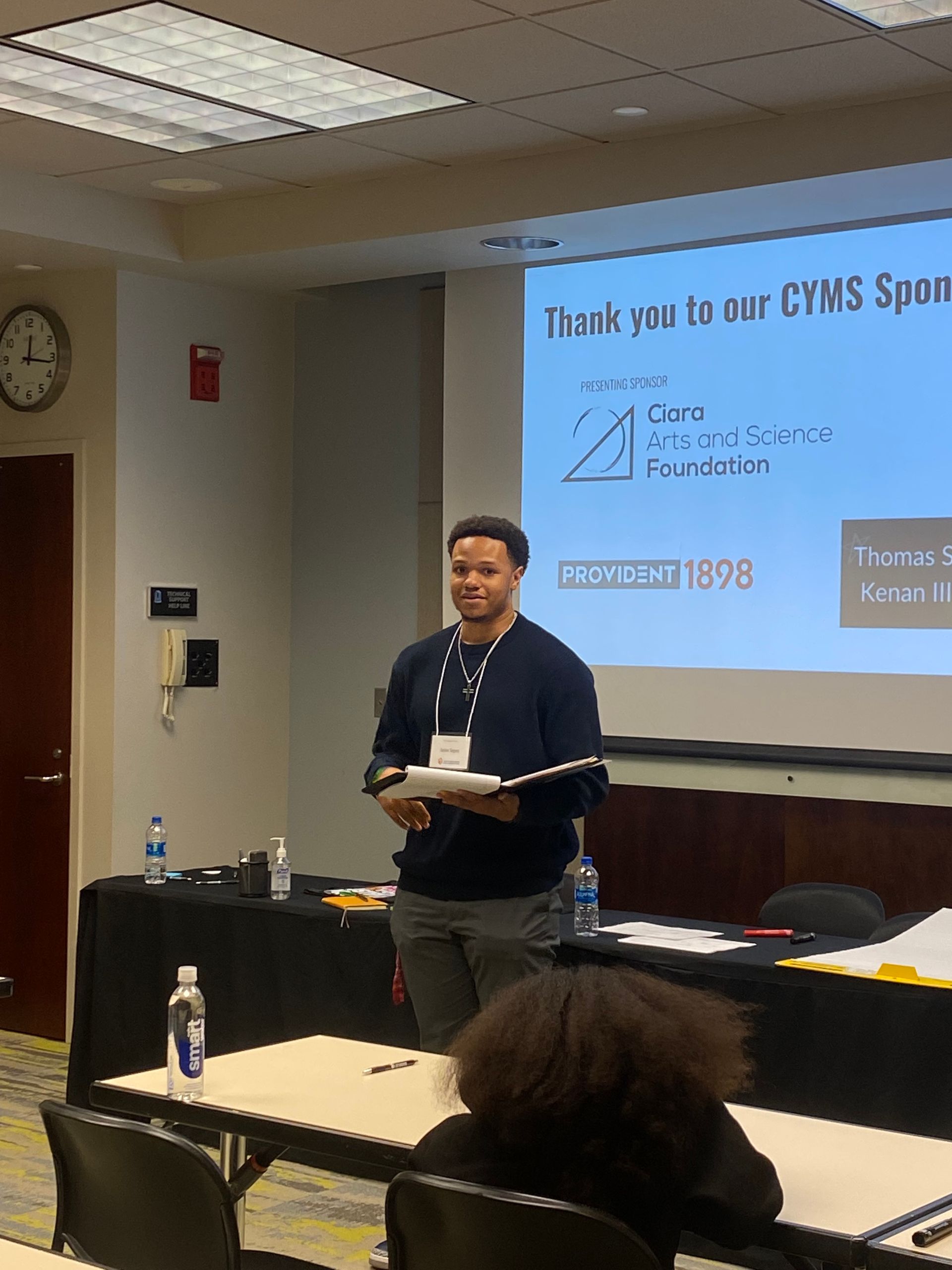
The Status Quo According to the Bureau of Labor Statistics , Black men have the lowest labor force participation and employment rates among men. Even when Black workers are able to penetrate into the work force, you see less and less of us as you climb the corporate ladder. Of the Fortune 500 CEO spots, only 6 are held by Black men (a “record” recently set .) A quote from Valerie Wilson , director of the Economic Policy Institute’s program on race, ethnicity, and the economy, sums up why this is such an important and disparaging fact. “Black workers, on average, are not being hired, promoted or paid according to what would signal their level of productivity based on their experience or their education. It absolutely impacts everything. It impacts your family’s economic security.” But it’s not only a desire to correct this systemic issue that should lead organizations to focus on seeking out more Black talent for their ranks. As it turns out, diversity in the workplace is actually an advantage when it comes to performance. According to Mckinsey , companies in the top quartile for racial and ethnic diversity are 35 percent more likely to have financial returns over their industry’s medians. In other words, more diverse companies tend to outperform competitors. Additionally, diverse companies are 70% more likely to be aware of (and capture) new markets according to HBR , and diverse management teams generate 19% higher revenue (as per BCG ). These are all the “why’s” of why it’s important and advantageous for business owners to correct for long-standing racial imbalances in the workplace. Now let’s get into the how. Recruiting & Retaining Black Talent When you commit to recruiting Black talent for your organization, there are some “gold-standard” rules that to keep in mind. 1. Paying a living wage, not minimum wage. According to MIT’s research , the living wage in the United States in 2019 was $16.54 for a family of four, far above the current federal minimum wage of $7.25 an hour. And that was before the pandemic and inflation. Attitudes have shifted across the United States. Between the Great Resignation and Quiet Quitting , employees are less willing to put up with subpar conditions and payment. Consider all the obstacles facing Black talent in the workforce, and how awareness of societal failures is only increasing. It’s highly unlikely that a Black worker is going to stick around if they don’t feel like they’re getting fairly compensated for their efforts. 2. Remove Other Barriers: Childcare, transportation, internet/equipment, more. One sometimes-overlooked aspect of the inequality facing Black talent is access to equipment or services that are often taken for-granted. For example, teleworking (working from home via Zoom, laptops, and other tech) boomed during the pandemic, but after the fact statistics showed that Hispanic and Black workers were 50% less likely to telework regularly compared to White workers ( CDC ). An easy way to avoid making this sort of mistake that might disqualify high-quality talent is by providing equipment and services (or at least making it known you’re open to doing so). 3) Connect them with another high-level Black male employee (OR an organization like Durham Success Summit). Another way to improve your retention of Black male employees is to immediately put them in contact with other Black male employees in your company, particularly those that are working at a higher level. Beyond providing them with an immediate role model for what success at your company might look like, this will allow both parties to discuss how your company handles delicate issues about and around race. 4) Check in regularly. Help make Black talent more comfortable at your company by checking on how they’re doing, ensuring that they’re adjusting, and seeing what you could do on your side to make their experience smoother. It’s possible that your company culture could be an adjustment for them, so checking in will help them understand that you’re at least willing to make the effort. 5) Be clear, transparent, and know what you don't know At the end of the day, Black talent is molded in a world filled with obstacles. You’re not going to be as in tune with these as your Black employees, and that’s okay. Always be willing to learn and listen to the experience of those who live this. For example, our consultants at Durham Success Summit are all professional Black men succeeding in various industries and are committed to improving the presence of Black men in the workforce. If you’d like to commit to joining us in our mission, we’d love for you to partner with us to help diversify your talent pool the right way. Click here to learn more.

‘Prior to the pandemic — when the US labor market was in good health — the unemployment rate for black Americans was roughly twice that of white and Asian adults. In 2019, it stood at 6.1 per cent, compared to just 3.3 per cent and 2.7 per cent for white and Asian adults, respectively. [...] At the worst of the Covid economic crisis, the black unemployment rate skyrocketed to nearly 17 per cent. For white workers, it was slightly lower, at 14 per cent.’ Colby Smith ‘Black America’s record employment gains at risk as Fed tightens rates’ - Financial Times
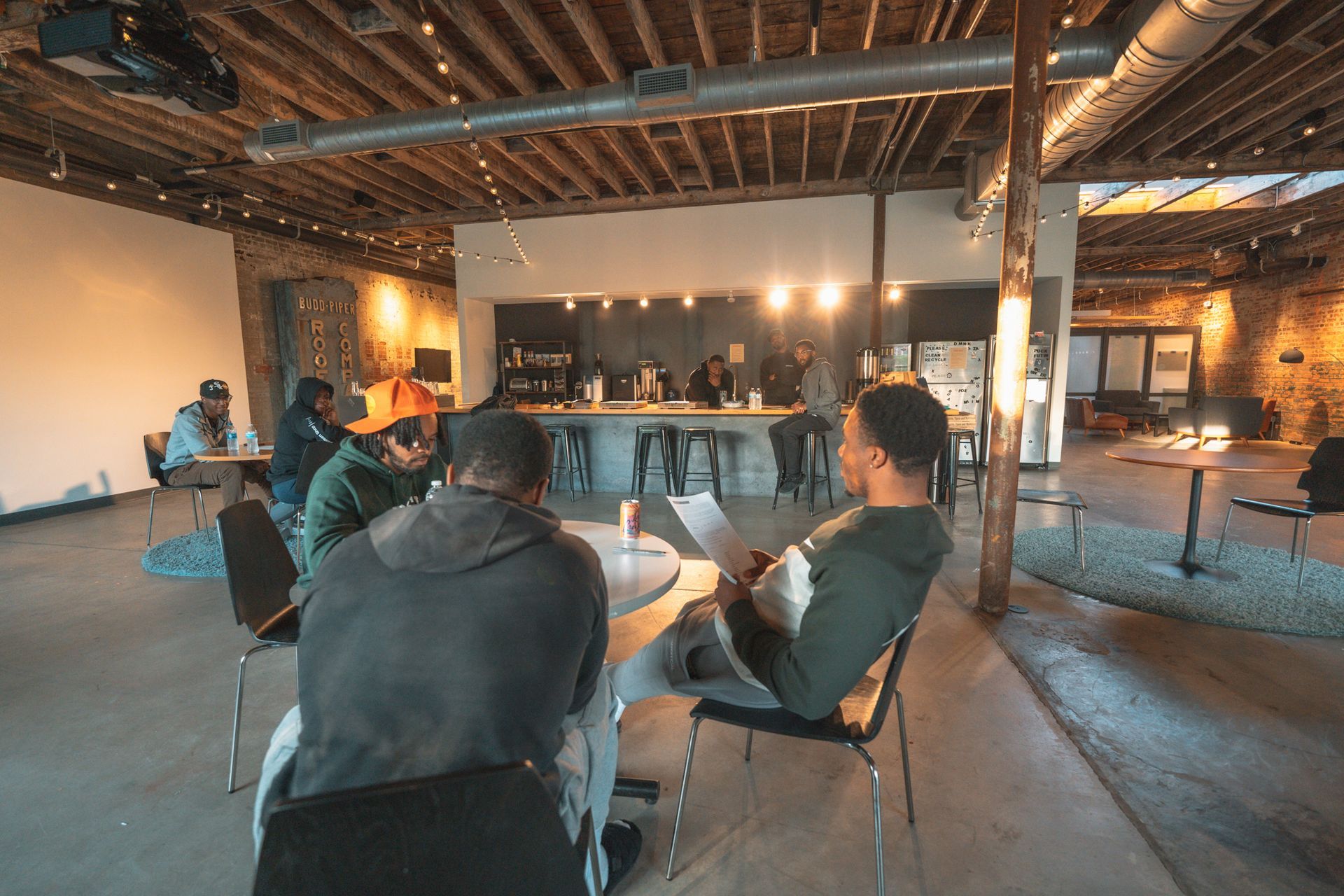
We are living in a time of great transformation. Our communities are adjusting to the evolution of our state and our country and we are advancing at a pace with which we are conspicuously unfamiliar. Rapid change, of course, inevitably results in upheaval, a consequence we can’t help but witness manifest as we scroll our social media platforms each evening. We are flooded every day with talking heads espousing thoughts and ideas and opinions, very little of which is ever backed up with data. Very little of which is ever rooted in fact. At times it can feel discouraging. At times it can be frustrating. And it is during these times when it is incumbent upon us to stay grounded. And it is during these times when it is incumbent upon us to make decisions based upon what is real and honest and truthful and not what is distributed to us as political propaganda disguised as authenticity. Because here’s the good news. In times of great transformation, we are afforded great opportunities. Opportunities will pass us by if we do not make the right decisions now or if we do not seize the right moments today. In July 2011, Forbes Insights, the research arm of Forbes Media, published a study called “Global Diversity and Inclusion: Fostering Innovation Through a Diverse Workforce.” In that study, the conclusion was definitive. The most certain path to remaining competitive and creative and inventive and viable is through a diverse and inclusive workforce. And since that time, study after study, year after year, the evidence continues to mount. The conclusions are crystal clear: the most successful businesses, the most profitable institutions, and the most innovative companies are the ones that employ a diverse labor force under the all-inclusive umbrella of an accepting environment. The future is coming fast and make no mistake about it: the future of our community is big and it is bright. But it will not wait for us. In December 2019, Charles Becker, research professor of economics at Duke University, forecast that Durham will grow anywhere from 30-50% over the next twenty years. Apple is opening a $1 billion campus in Research Triangle that is expected to create 3,000 jobs and generate more than $1.5 billion in economic benefits annually. Google recently announced that an engineering hub focusing on cloud computing will be opening in Durham and it is expected to bring another 1,000 jobs to the area. These titans of industry recognize our promise and our potential. Now, we are responsible for realizing it. In our community, we are face-to-face with a unique moment in time. The rapid economic growth and development we are experiencing in Durham today allows us a once-in-a-lifetime opportunity to wedge open the doors that have been stubbornly nailed shut by the sins of our past. Doors that will lead to a brighter future for new generations of young men of color if only we provide them with the tools they need to breakthrough. The time is upon us. For far too long young men of color are underrepresented among youth who excel in school and overrepresented among those with low grades and low test scores. We need to remove barriers that stand in the way of their academic success so that, when the time comes to apply for jobs and apprenticeships, they stand ready and able. The Brookings Institution in Washington, DC is a nonprofit public policy organization whose mission is to conduct non-partisan, in-depth research that leads to new ideas for solving problems facing society at the local, national and global level. Camille Busette, the Policy Program Director for the Race, Prosperity, and Inclusion Initiative at the Brooking Institute, recently wrote, “To be male, poor, and either African-American or Native-American is to confront, on a daily basis, a deeply held racism that exists in every social institution. No other demographic group has fared as badly, so persistently and for so long.” We can change that in Durham. We can change the future of the 43,800 black men and boys in our community. We can brighten the future of the 12,000 young men of color between the ages of 16-24. We can do this by offering them the opportunity to better themselves in the classroom and in their lives beyond school. It is imperative that we seize this moment. If we cannot assure that young men of color are afforded the opportunities provided by our growth, we risk being mired, once again, in the muck of history, ignoring the data and the facts and the truth that clearly demonstrate the success that we can achieve if all our children are provided an equal chance to succeed. We need to create a feeling of real belonging in our community. Our philosophy on growth and opportunity needs to be rooted in connection and acceptance. But this is not easy. Realizing this vision means moving past old archetypes and beyond old definitions that view diversity as a mere “box-ticking” exercise. And as a single-minded community, we can succeed. Because the truth is, creating a more inclusive and diverse work environment (reflective of our community and our society) is not only the right thing to do, it also makes business sense. Because by building a more diverse and inclusive work environment, you are instilling greater trust in workers. And more trust means more engagement. And highly engaged workers go the extra mile for their company. And more successful companies mean a more robust and prosperous community. The data is right there. This time let’s use it.
HELP US HELP OTHERS
Support our students so they can thrive and achieve their goals
Your donation goes to students in need.
